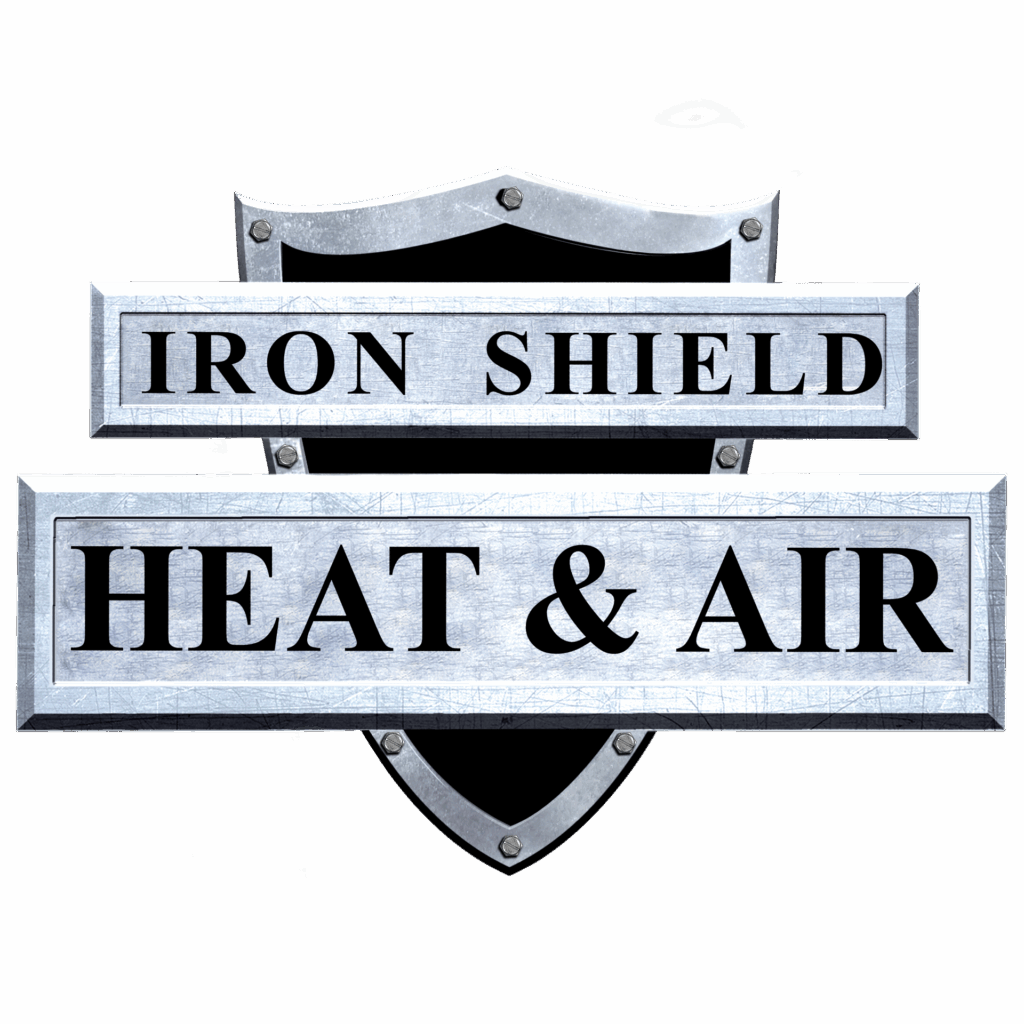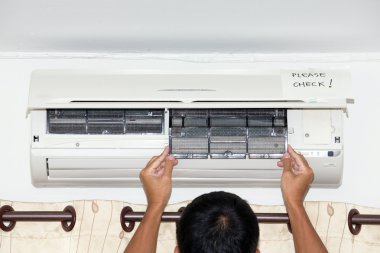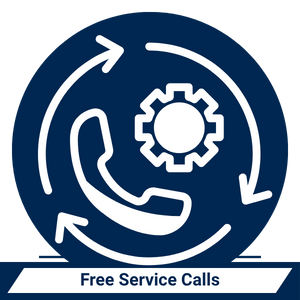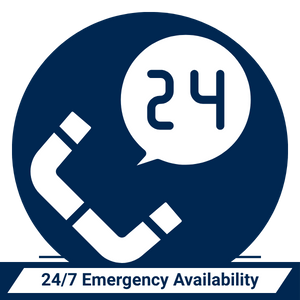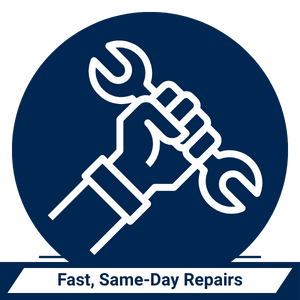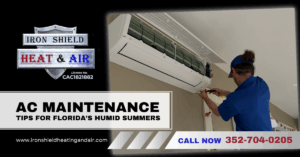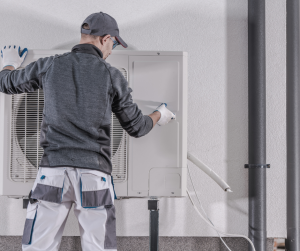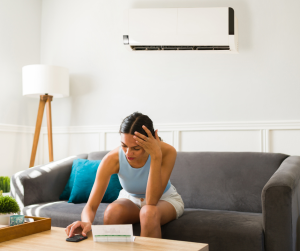When was the last time you checked or replaced your HVAC air filter? If it’s been a while, you could miss some huge benefits! Regularly changing your air filter is one of the simplest yet most effective ways to improve your indoor air quality, lower your energy bills, and extend the lifespan of your HVAC system. Let’s dive into the importance of changing your air filter and why making it a priority can significantly impact your home and health.
Why You Should Change Your Air Filter Regularly for Better Indoor Air Quality
We often consider air filters a small, inconsequential part of our HVAC systems, but they play a crucial role in maintaining clean, breathable air. Imagine this: Your air filter is the unsung hero, catching dust, dirt, pollen, pet dander, and even mold spores before they circulate throughout your home. When your filter is clogged or dirty, it simply can’t do it properly. This leads to a buildup of contaminants that negatively affect indoor air quality.
The Importance of Clean Air in Your Home
Dirty air filters compromise your home’s air quality, which can cause respiratory issues like coughing, sneezing, and even asthma flare-ups, especially for children, the elderly, or anyone with pre-existing respiratory conditions. Regularly changing your HVAC air filter ensures the air circulating through your home remains clean, fresh, and free from harmful particles. This simple action can dramatically improve the overall health of everyone in your household.
How Often Should You Change Your HVAC Air Filter? Tips for Every Homeowner
A common question homeowners ask is, “How often should I change my air filter?” The answer varies based on a few factors, but a good rule of thumb is to change your air filter at least every three months. However, if you have pets, allergies, or live in a dusty environment, you may need to change your filter more often—every 30 to 45 days could be ideal.
Tips to Know When It’s Time to Replace Your Air Filter
- Check the Filter’s Condition: Look for visible dirt, dust, and discoloration. A dirty filter does not work as efficiently as a clean one.
- Smell the Air: If you notice a musty or stale smell, your air filter may be clogged with dust or mold.
- HVAC System Performance: If your system seems to be running constantly or isn’t cooling or heating effectively, a dirty filter might be to blame.
Top Benefits of Changing Your HVAC Air Filter That You Can’t Ignore
1. Improve Your Home’s Air Quality
The most immediate benefit of replacing air filters regularly is improving air quality. A clean air filter traps harmful particles, keeping indoor air fresh. Whether running the furnace in winter or the air conditioner in summer, this simple action ensures that the air you breathe is as healthy as possible.
2. Save Money on Energy Bills
Did you know a clogged or dirty air filter can increase energy bills? When your air filter is dirty, your HVAC system has to work harder to push air through the filter. This causes unnecessary strain on the system, consuming more energy. Replacing your air filter regularly can improve your HVAC unit’s efficiency and help you save on monthly energy costs.
3. Extend the Life of Your HVAC System
Think of your HVAC system as the heart of your home’s climate control. Just like the heart needs regular care, so does your HVAC system. Regularly replacing your air filter prevents dust and debris from accumulating inside your system. This reduces wear and tear on your HVAC components, helping to extend its lifespan and saving you money on costly repairs or replacements in the long run.
What Happens When You Don’t Change Your HVAC Air Filter?
Skipping regular filter changes can lead to a host of issues. A clogged air filter reduces airflow, making your system work harder, and can cause severe damage to your HVAC unit. The longer you go without replacing the filter, the harder it becomes for your HVAC system to circulate air efficiently. This could result in costly repairs, reduced comfort in your home, and higher utility bills.
The Risks of Ignoring Your Air Filter
- Increased Allergens: Dirty filters allow allergens to circulate through your home, potentially triggering allergic reactions.
- Overworked HVAC Unit: The strain on your system can cause it to overheat and break down, leading to expensive repairs or a complete system replacement.
- Decreased Air Quality: A clogged filter will fail to remove airborne pollutants, leading to poor indoor air quality that could affect your family’s health.
How to Know When It’s Time to Replace Your HVAC Air Filter
Monitoring your filter’s condition is the best way to ensure its effectiveness. But how can you tell when it’s time for a change?
Signs Your Air Filter Needs Replacing
- Reduced Airflow: If you feel that the airflow from your vents has decreased, the filter is probably clogged.
- Longer Cooling or Heating Times: A dirty filter makes it harder for your system to heat or cool your home. If your HVAC unit is taking longer to achieve the desired temperature, it’s time to check the filter.
- Visual Clues: When you remove the filter, check for visible dust and debris. If the filter is darkened and covered with particles, it’s time for a replacement.
The Importance of Choosing the Right HVAC Air Filter for Your Home
Not all filters are created equal. Different types of HVAC air filters are designed for specific needs. Choosing the right filter can significantly affect air quality and system efficiency.
Different Types of Air Filters and Their Benefits
- Fiberglass Filters: Affordable but not the best for high filtration.
- Pleated Filters: These are more efficient at capturing particles and are ideal for households with pets or allergies.
- HEPA Filters: The gold standard for allergy sufferers, capturing even the smallest particles like pollen and pet dander.
Choosing the Right Filter for Your Home
When selecting an air filter, consider factors like the level of filtration you need, the type of air filter your HVAC system requires, and the size of your unit. Always consult your HVAC manufacturer’s recommendations to ensure you choose the right filter type.
How to Change Your HVAC Air Filter: A Simple Step-by-Step Guide
Changing your air filter is easier than you might think! Here’s how to do it:
- Locate the Filter: Your filter is usually in the return air duct or blower compartment.
- Turn Off the HVAC Unit: Ensure your HVAC system is turned off before handling the filter.
- Remove the Old Filter: Carefully pull the filter out of its slot.
- Insert the New Filter: Place the new filter in the same orientation as the old one and ensure it’s seated properly.
- Turn the System Back On: Once the new filter is in place, turn your HVAC system back on and check the airflow.
The Role of Regular HVAC Maintenance in Ensuring Clean Air and System Efficiency
HVAC maintenance is more than just changing the filter. Regular service, like cleaning the ducts and checking for leaks, can help keep your system running smoothly and improve your home’s air quality. If you’re unsure about your system’s health, consider scheduling an annual HVAC check-up with a professional.
Consulting a Professional for Your HVAC Air Filter Replacement
While changing the air filter is a simple DIY task, it’s essential to have professionals inspect your HVAC system regularly to ensure everything is functioning optimally. Our professionals at IronShield Heating & Air can spot issues early and adjust to improve your system’s efficiency.
Don’t Wait – Start Reaping the Benefits of Changing Your HVAC Air Filter Today
Now that you understand the importance of regularly changing your HVAC air filter don’t wait to take action. The benefits of replacing your air filter periodically are clear: better indoor air quality, lower energy bills, and a longer lifespan for your HVAC system.
Make it a habit to do this every three months or more often if necessary. Your home and your health will thank you! Contact us today at IronShield Heating & Air for top-notch installation and maintenance services. Let’s make your comfort our priority!
